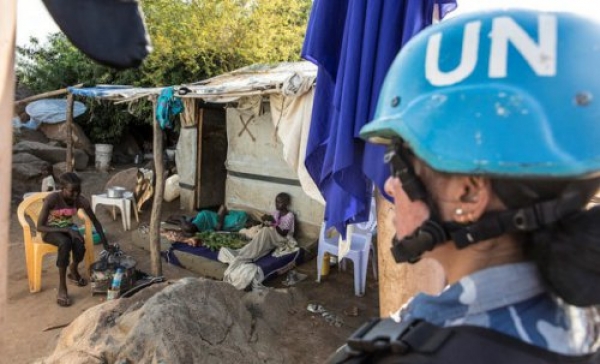- Protestors met with violence in Iraq
According to the message conveyed by the head of the UN Assistance Mission for Iraq (UNAMI) to the Security Council, recent protests in the country have been met with an extreme and unwarranted use of force. Furthermore, the UN Special Envoy, Jean Hennis-Plasschaert, highlighted that the emergence of protests was a direct result of the accumulating frustration over the country’s lack of progress and corrupt political processes. Civilians have paid a heavy price for protests, with over 400 people killed and almost 20 000 injured due to human rights violations. Hennis-Plasschaert highlighted that right to peaceful assembly and freedom of expression have also been infringed.
A growing demand for electoral reform, better employment opportunities, accelerated economic growth, anti-corruption measures and fundamental changes to the post-2003 political system have been growing, and have materialised in several protests held since October 2019. The UNAMI Human Rights Office has reported that, although Iraqi Security forces have shown an increasing amount of restraint since protests started, both lethal and less-lethal weapons continue to be used on the unarmed demonstrators.
Prime Minister Adel Abdul Mahdi resigned in late November and has since taken on a caretaker role until a new leader can be chosen by Parliament. However, so far, Iraqi politicians have been unable to reach an agreement on who controls the majority in the Parliament, and therefore should form the new government. As parliament seeks a solution, demonstrators are calling for a complete dismantling of this system, asking for an electoral system that allows them to directly vote for their own leader. As violence and unrest continues, the UN is urging the government and security forces to stop using force against protesters and to deliver on their demands. As civilian casualties continue to rise in number and the political situation deteriorates, UNAMI has called on Iraqis to work together to build a stable, sovereign and prosperous country to ensure domestic and regional security.
Further reading:
https://news.un.org/en/story/2019/12/1052641
https://www.bbc.com/news/world-middle-east-50595212
2. State crumbling under continued violence in Mali
Since a beginning of the conflict began between the government, Tuareg rebels and terrorist groups in 2012, Mali has been plagued by violence, instability and poverty. Following a recent visit to Mali, the UN Independent Expert, Alione Tine, has warned that continued violence, poverty, and the incapacity of state institutions have created a critical security situation.
Mr Tine’s report highlights how the failings of the state and its institutions have deepened frustration among the population and deepened the state of instability. Continued terrorist attacks have further demoralised and weakened the already fragile Malian Army and state. Most worryingly, civilians in many areas are being denied basic human rights, most notably the right to life. Since the beginning of the conflict in 2012, hundreds of civilians as well as soldiers and peacekeepers have been killed. Although numerous ceasefire agreements and peace accords have been signed since 2013, they have failed to produce any lasting effect.
Despite of the activities carried out in Mali by the United Nations Multidimensional Integrated Stabilization Mission in Mali (MINUSMA) since 2013, at the cost of $1bn a year, Mali’s government is requesting a coalition force to be established to intervene. According to Mr Tine, a lack of change in the government’s approach may lead to further destabilisation. In consequence, the situation in Mali could become the most serious threat to regional and international peace.
The full report on this subject will be presented to the UN Human Rights Council in March 2020..
Further reading:
https://news.un.org/en/story/2019/12/1052531
3. Violence continues despite of the peace agreement reached in Sudan
In spite of a peace agreement signed in September 2019, the United Nations Mission to South Sudan (UNMISS) has reported that inter-communal clashes have been on the rise in recent months, leading to the death, injury and property loss for many civilians in South Sudan.. In response, the UNMISS has announced a diversion of 75 UN Peacekeepers to carry out continued patrols across the areas surrounding Maper, situated in the centre-north of the country.
Although widespread violence in South Sudan has decreased since 2018, the two communities near Maper have carried out revenge attacks in recent months. As clashes between the Gak and Manuer continue, the escalation of violence has seen as many as 79 people killed and over 100 injured.. In order to alleviate the fear that a large-scale conflict may reoccur, the announcement of an increase in the number of troop numbers and a refocusing of efforts was made.
Similarly to the situation in Mali, attacks on peacekeepers and aid workers have been on the rise, with the recent attacks on an NGO compound located in Buni being condemned by the United Nations High Commissioner for Refugees (UNHCR). This continuing lack of trust between combatant fractions, the government and aid workers will be one of the greatest challenges in maintaining the peace agreement signed in September.
Further reading:
https://unmiss.unmissions.org/unmiss-acts-deter-violence-maper-one-community-extends-hand-peace




